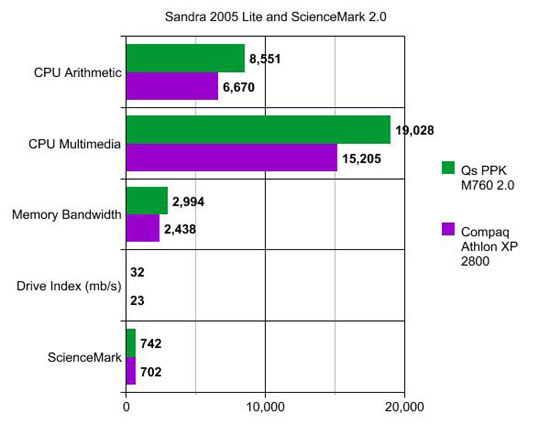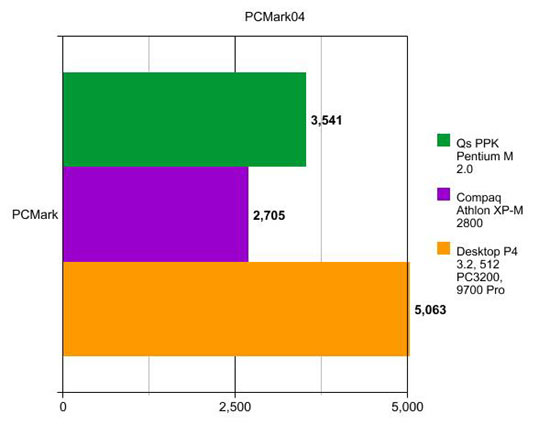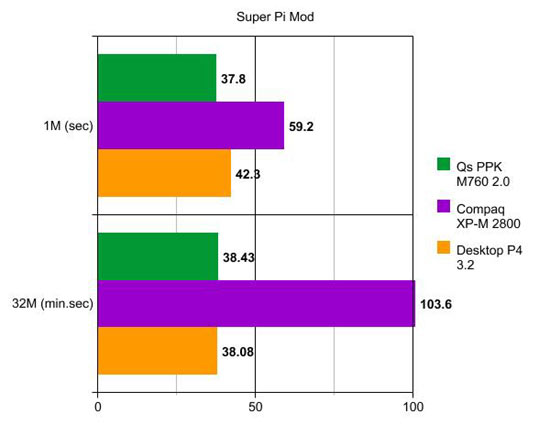ASUS Z63A Whitebook Laptop Review
Benchmarking Begins
Sisoft Sandra 2005 SR-2a and ScienceMark 2.0 Final

Comments: For Sandra’s synthetic benchmarks, the ASUS Z63A leads the way. The differences in results between the ASUS Z63a and the Compaq vary about 20%, which is significant. ScienceMark 2.0 Final is primarily a memory benchmark and no substantial differences are noted between the two notebooks.
Let’s try some real-world applications.
FutureMark PCMark04

Comments: The 04 version of PCMark is far less finicky to run than the 05 version. I’ve shown my office desktop as a comparison (Pentium 4 3.2 GHz @ 260 fsb, 2×256 PC3200 ram @ 260 fsb and 2.5-4-4-4-2 timing, Intel 865 chipset, Radeon 9700 Pro). In PCMark04, the ASUS Z63a is faster than the Compaq 2800+ by about the same margin that my overclocked 3.2 GHz desktop is faster than my new notebook (and it really isn’t that much faster). It’s all good �

Comments: This is a real-world test of ?number crunching’ ability. Note that in the calculation for 1 million digits, the ASUS Z63a was 36% faster than the Compaq, but for 32 million digits the ASUS Z63a notebook was 268% faster. I repeated this test 4 more times on the Compaq, and got identical results twice and a DNF twice. Because this is a cpu-dependent benchmark, I’m betting that the AMD Athlon ran into processor or chipset heat issues and throttled down (although normal power-related throttling was disabled in Power Scheme and BIOS) and outright crashed for the DNF’s. I ran the 4 repeats at different times of the day, ranging from 84 during the day to low 60’s at night. Chalk up another hidden advantage to the Centrino technology, as Sandra shows the M760 (2.0 GHZ) CPU as putting out only 25 watts versus 60 for the Athlon.
In another amazing Super Pi result, when I compared the PPK to my overclocked Pentium-4 3.2 desktop, the PPK won! This is probably a function of the Pentium M760’s larger L1 and L2 cache, but the 1 gig of ram (versus 512 in the desktop) may have contributed. In any case, this result suggests that when you take the difference in video cards out of the comparison, ASUS’s Z63a notebook is as fast as my overclocked desktop in Super Pi. Now I’m getting all twitchy and stuff!

Comments are closed.